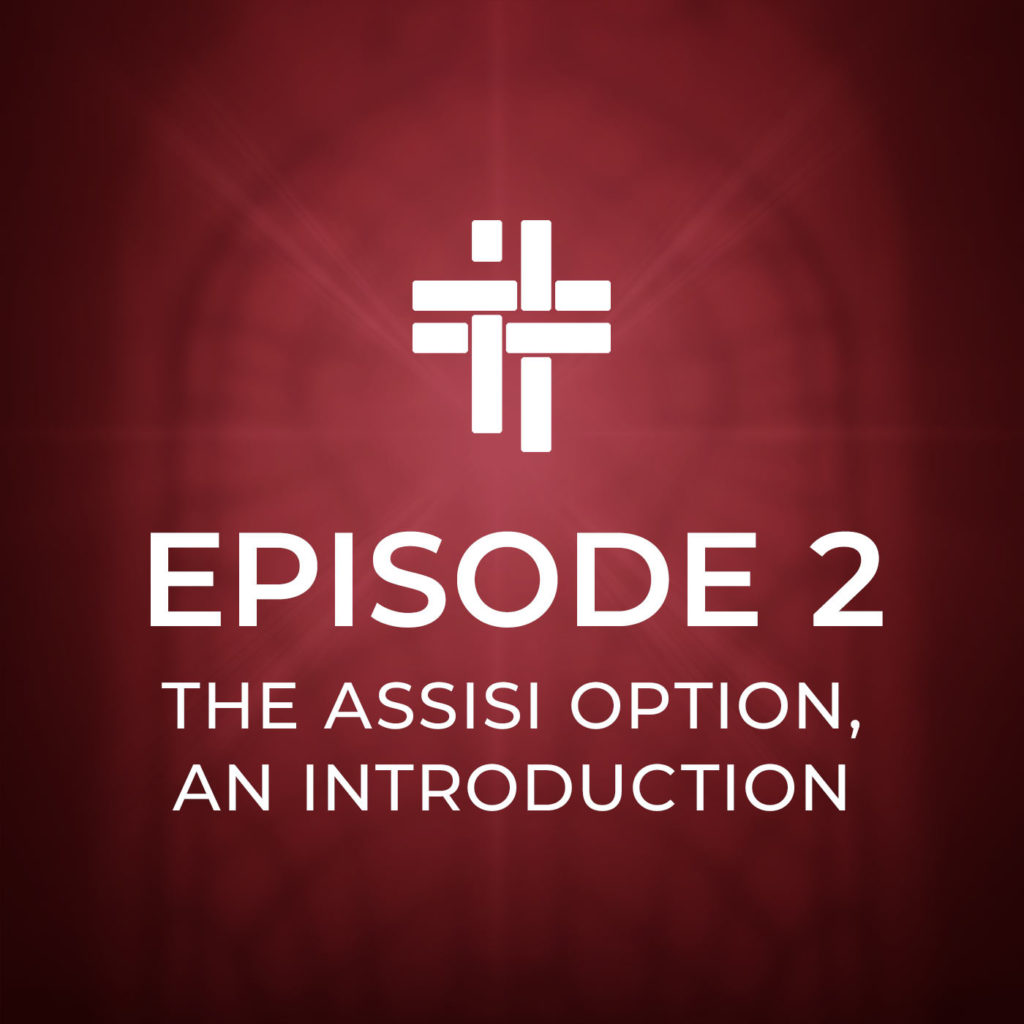The Assisi Option addresses the clash between people of faith and a secular culture. It calls for the creation of spiritual direction centers for mediation, pastoral counseling, and spiritual direction. Inspired by the legacy of Saint Francis, participants will alternate between hermitage and ministry. As contemplatives, they will nurture the Peace of Christ. They will engage in robust faith-based reconciliation and become instruments of peace.
Podcast: Play in new window | Download (Duration: 9:31 — 13.1MB) | Embed
Subscribe to the podcast
Credits
“Angel Share” and “On My Way” by Kevin MacLeod (incompetech.com) Licensed under Creative Commons: By Attribution 3.0 License


